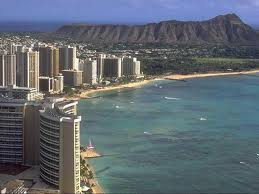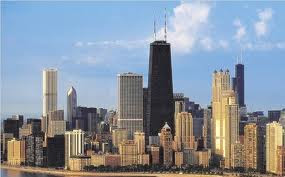5 Tips For Traveling to Canada - Canada can be a great vacation destination, with its beautiful vistas, wild animals, gorgeous winding roads, and cosmopolitan cities. Even if you travel to Canada on a regular basis, the out this list of five travel tips to Canada.
Tip #1: Bring a Good Travel Guide to Canada
When you travel to any new place, it's important to carry a good travel guide. Canada is no exception. You can print out a travel guide on line, or you can purchase a well-know travel guide for Canada, such as Lonely Planet.
A good travel guide will give you insight into where to stay, shop, eat, and drive. Plus, it will give you lots of tips about things to do, great night life, and activities that are fun for the whole family. Invest in a good travel guide for Canada, and you won't be sorry.
Tip #2: Think About the Climate
Before you pack for your travel to Canada, don't forget to consider the weather. If you're going to the Maritime Provinces, remember that they tend to be a bit more humid than the provinces in the west. In Halifax, Nova Scotia, you can expect weather that hovers around freezing in winter and is temperate in the summer.
If you are traveling to Canada and staying the mountain areas, you can expect to see a lot of variation in temperature. Layering clothing is helpful in these regions. Conversely, the areas of Vancouver and Victoria are much more temperate and don't often see freezing temperatures.
Tip # 3: Plan for the Border Crossing
Travel to Canada has gotten a lot more complicated in recent years, as new restrictions on border entry have been imposed. The documentation requirements for travel to Canada are in a constant state of change, so it's important to check into these requirements before you leave.
For the most up-to-date information on travel to Canada from the US, go to the US Department of State Website.
Tip #4: Understand the Currency
One of the most important travel tips for Canada is the importance of understanding the currency before you go. Canada uses the Canadian dollar, although many border locations will accept American dollars as well. It's wise to carry traveler's checks in the Canadian dollar, since they are accepted almost everywhere.
The best exchange rate for currency and traveler's checks is at the Canadian chartered banks. There are also many ATMs in Canada.
Tip #4: Don't Forget About the Sales Tax
Like the US, the Canadian government has a sales tax for goods and services. Don't forget about this tax when planning expenses when you travel to Canada.
Sales tax rates depend on the province. Current sales tax rates for the provinces are as follows:
* No sales tax in Alberta, Nunavut, Northwest Territories, or the Yukon
* 5% sales tax in Saskatchewan
* 7% sales tax in Manitoba and British Columbia
* 7.5% sales tax in Quebec
* 8% sales tax in Ontario
* 10% sales tax on Prince Edward Island
* 13% harmonized sales tax in New Brunswick, Newfoundland, and Nova Scotia
Tip #5: Tips On Tipping
Another important tip about Travel Guide to Canada [http://www.travel-guide-canada.ca] is to understand the way Canadians handle gratuities. Tips are not usually included in restaurant bills. Standard practice is to tip 12% to 15% for good service.
Tip #1: Bring a Good Travel Guide to Canada
When you travel to any new place, it's important to carry a good travel guide. Canada is no exception. You can print out a travel guide on line, or you can purchase a well-know travel guide for Canada, such as Lonely Planet.
A good travel guide will give you insight into where to stay, shop, eat, and drive. Plus, it will give you lots of tips about things to do, great night life, and activities that are fun for the whole family. Invest in a good travel guide for Canada, and you won't be sorry.
Tip #2: Think About the Climate
Before you pack for your travel to Canada, don't forget to consider the weather. If you're going to the Maritime Provinces, remember that they tend to be a bit more humid than the provinces in the west. In Halifax, Nova Scotia, you can expect weather that hovers around freezing in winter and is temperate in the summer.
If you are traveling to Canada and staying the mountain areas, you can expect to see a lot of variation in temperature. Layering clothing is helpful in these regions. Conversely, the areas of Vancouver and Victoria are much more temperate and don't often see freezing temperatures.
Tip # 3: Plan for the Border Crossing
Travel to Canada has gotten a lot more complicated in recent years, as new restrictions on border entry have been imposed. The documentation requirements for travel to Canada are in a constant state of change, so it's important to check into these requirements before you leave.
For the most up-to-date information on travel to Canada from the US, go to the US Department of State Website.
Tip #4: Understand the Currency
One of the most important travel tips for Canada is the importance of understanding the currency before you go. Canada uses the Canadian dollar, although many border locations will accept American dollars as well. It's wise to carry traveler's checks in the Canadian dollar, since they are accepted almost everywhere.
The best exchange rate for currency and traveler's checks is at the Canadian chartered banks. There are also many ATMs in Canada.
Tip #4: Don't Forget About the Sales Tax
Like the US, the Canadian government has a sales tax for goods and services. Don't forget about this tax when planning expenses when you travel to Canada.
Sales tax rates depend on the province. Current sales tax rates for the provinces are as follows:
* No sales tax in Alberta, Nunavut, Northwest Territories, or the Yukon
* 5% sales tax in Saskatchewan
* 7% sales tax in Manitoba and British Columbia
* 7.5% sales tax in Quebec
* 8% sales tax in Ontario
* 10% sales tax on Prince Edward Island
* 13% harmonized sales tax in New Brunswick, Newfoundland, and Nova Scotia
Tip #5: Tips On Tipping
Another important tip about Travel Guide to Canada [http://www.travel-guide-canada.ca] is to understand the way Canadians handle gratuities. Tips are not usually included in restaurant bills. Standard practice is to tip 12% to 15% for good service.








